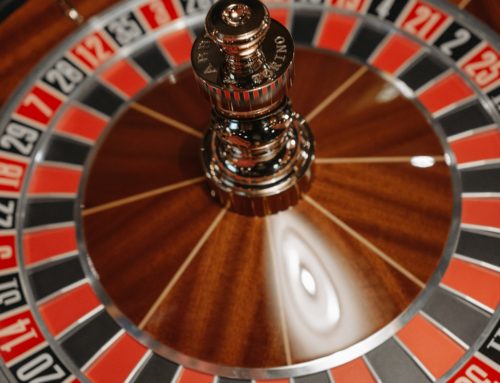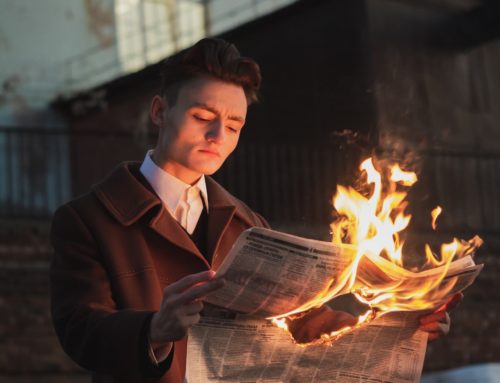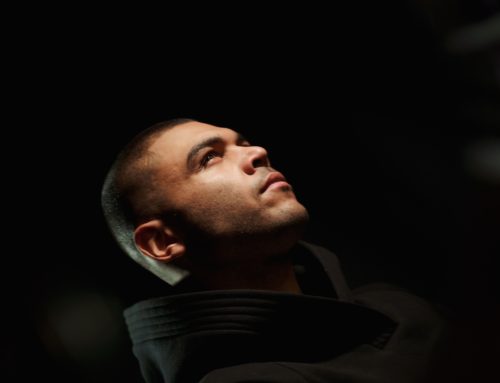Do we need more blitz spirit?
October 30, 2020
Blitz spirit. There’s a topic I doubt people expected me to write about. But it’s been gnawing at me, ever since Maureen from Barnsley was hailed as the Voice of the Nation for saying that we needed to show more blitz spirit during the pandemic. As a concept, I find it both psychologically fascinating and rather irritating. My guess is that responses to the question fall into two* camps:
- Yes, of course we do. End of story.
- Oh please, please can we stop banging on about the war?
*I guess there could be a third camp of “What’s blitz spirit?” in which case I assume you’re either not familiar with the UK (in which case welcome to the British psyche) or very young (in which case dig out your GCSE history books. It’ll be in there somewhere).
Whichever camp you’re in, I’d encourage you to read on (of course I would) as I think it’s a bit more nuanced than you might think.
What is blitz spirit?
The spirit of the blitz is one of our most enduring national myths. I don’t mean myth as in made up (though it may be); I mean myth as a collective story we tell ourselves about our past and our identity. It’s a stirring tale about how we stood together in dark times and, no matter what Hitler threw at us, we prevailed. It speaks of a resolute and resilient character. It has clear resonance in a global pandemic.
Is it true?
Who knows? Historians would suggest probably not. Certainly there was a well-documented surge in crime, including murders (you don’t hear much about the Blackout Serial Killer, do you?), widespread looting of bombed houses and even the theft of jewellery from the bodies of blitz victims. What people remember is the camaraderie, the bedding down in tube stations, the singalongs which happened too. In the end, it almost doesn’t matter how much of it is true. Once it reaches national myth status it has a life of its own and for some people it resonates very strongly.
“We survived the blitz”
Maureen from Barnsley spoke with the credibility of someone who lived through the blitz. Frequently the reaction people get when they say “We survived the blitz/won the war/defeated Hitler” is “No you didn’t Gary. You were born in 1958”. This misses the point and it’s where the psychology comes in.
For people with traditional values, who tend to be lower on the openness dimension of personality, a sense of belonging and group loyalty is very important. They see a continuity between themselves and their ancestors. People who are higher on the openness dimension are more interested in change, see less continuity with the past and feel less group loyalty. I’m firmly in the latter camp with all the other citizens of nowhere, derided by Theresa May. But since 2016, when I wrote about the psychology of Brexit, I’ve tried harder to understand the mindset and motivations of people who think very differently from me.
Recently, for example, I found myself quite moved watching a history documentary in which a Native American man described how the Cherokee came to the aid of European settlers as they pushed west in the early 19th century: “They’d have died if we hadn’t helped them”. He clearly saw himself as part of this group despite being born about 150 years later. It made a kind of sense to me, so why be dismissive of people who feel some ownership of blitz spirit even though they weren’t there?
And yet in the pandemic that sense of national pride seems to have been hijacked by people who have forgotten what the war was actually like. They see it as a betrayal of blitz spirit to show concern about the virus or accept any constraints on their lives.
The real blitz spirit
This is how “we” demonstrated blitz spirit at the time:
We recognised the severity of the threat
We knew lives were at stake and of course we were afraid. Being resolute wasn’t about downplaying the danger or pretending it didn’t exist (“It’s just a few bombs, Doreen. I don’t know what you’re making such a fuss about”). If there was no real threat, there would be no need for blitz spirit. Neither do there seem to be reports of people in areas which didn’t get bombed claiming the whole thing was a hoax (“You can’t trust that Pathé news. I’m sure they use the same footage every time”).
We did what was necessary
We went to shelters during air raids. There was a nationwide blackout for the entire duration of the war. Sometimes the preventative measures were as bad as the threat. Thousands of people died in accidents in the dark, including my great-grandfather who slipped between a ship and the quayside and drowned. And yet we persisted.
We were in it together
We recognised we faced a collective threat, requiring collective action. About 43,000 people died in the blitz from a population of 41 million, around 0.1%. I think you’d have got short shrift if you’d said “Well my chances of surviving this are 99.9%, so I’m just going to leave all my lights blazing and open the curtains”.
We tried not to let it get us down
We kept calm and carried on. But carried on with what exactly? Certainly not normal life, not with the air raids, the blackouts and the rationing. Mostly what we kept on doing was living (except for the ones who didn’t, obviously). What alternative was there?
What is the relevance now?
For some of us blitz spirit has no relevance now. I don’t see myself as part of the “we” who endured the blitz. But I am part of the “we” who is enduring the pandemic. It infuriates me that the people most likely to wrap themselves in the flag and sing Land of Hope and Glory have taken the Keep Calm and Carry On (as if nothing is happening) part of blitz spirit and discarded the mortal danger and collective sacrifice.
I know that working out “what needs to be done” – balancing our health, mental health, the economy, education, etc – is not straightforward and there is scope for legitimate debate. But in that debate people are often not speaking the same language. While some of us talk about risk management, others are talking about defiance and not giving in. That made sense in the war when Hitler wanted to crush British morale. It makes no sense against a virus, which really doesn’t care how we feel.
Part of the reason for writing this, in language that is not really mine, is to engage with that defiance rather than dismiss it. So if you are tempted to invoke blitz spirit to suggest we are overreacting to a global pandemic (or know someone who does), I’d ask this: how close does the bombing have to get before you agree to black out your windows?
Many of us are lucky enough to be able to Keep Calm and Carry On from the safety of our own homes. I’m not suggesting this isn’t a sacrifice but at least this time we have Netflix.
Photo credit
[/fusion_text][/fusion_builder_column][/fusion_builder_row][/fusion_builder_container]




Thought provoking article, Caroline. I’m noticing the attitude from earlier in the year was very much an ‘all in it together’ and now, as you’ve identified, we’re dividing into two, if not more, camps. You’re right about engaging with the other side of the discussion. It’s a challenging thing to do – I’ve not mastered it yet, though. Thanks for this. Hmmm…
Thanks Rachel. I’m glad you found it thought-provoking. I hesitated over writing it, as it’s not especially work related, but I found it was bugging me so much that I needed to get it off my chest!
I was extremely pleased to discover this page. I want to to thank you for ones time due to this wonderful read!! I definitely appreciated every part of it and I have you bookmarked to look at new information on your web site.